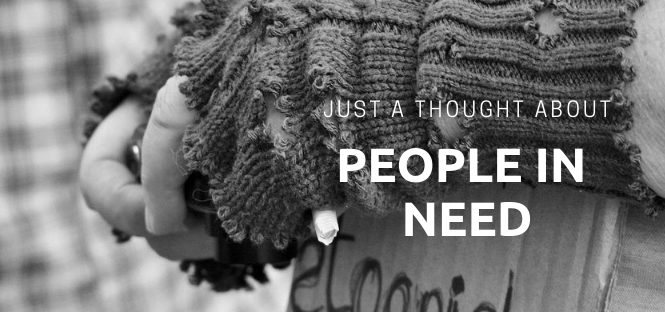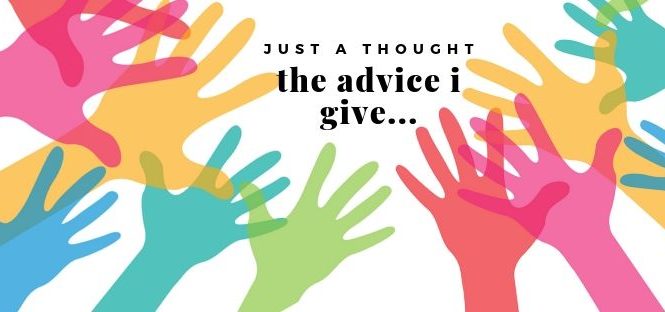A friend on Facebook posted something really crummy the other day, and I can’t stop thinking about it.
But first, in the interest of full disclosure, I need to mention that I don’t go on Facebook anymore — other than to share the link to my latest blog post. I realize how self-serving that is (and I apologize if my admission offends you or insults the integrity of our Facebook friendship status!) But Facebook hasn’t been hitting me well for the past year or so, and I’m OK with contributing a blog post here and there, but I’m not too keen on consuming much of anything right now. (Which might make me a “crummy poster,” too — but, I’ll let you be the judge of that.)
Anyway.
This friend who posted something negatively noteworthy is a mutual friend between Lou and me, and Lou read her post to me the other morning. It was one of those posts that goes something like this:
All you Christians should be ashamed of yourselves. How can you call yourself a Christian when you support this, that, and the other, and turn your back on that…and that…and, this? I bet Jesus would be appalled.
This isn’t the first time I’ve noticed a post like this on Facebook — and it’s also not the first time someone I know has claimed to know how Jesus feels about American politics. But you should know that I deliberately chose not to directly quote the post that Lou read to me because I actually really do care about the person who posted it, and I don’t want to appear to be shaming her if she happens to read my blog. For a very long time, I was invested in her life, and she was invested in mine, and I want to remember that fact about her more than I want to feel the barbs in her accusatory post.
But as with so many of the friendships I maintain on Facebook, life sent this woman and me in different directions, and I no longer have the chance to know her like I used to. So my “friendship” with her really only amounts to what we can find out about each other on social media — which isn’t enough to go on. For me, at least, reading an occasional status update doesn’t build a meaningful or lasting friendship, and very often, I believe that status updates and pictures can be incredibly misleading. And because I do care about this woman, I want to believe that she wasn’t thinking of me when she posted this statement about “All you Christians“…
Because I can’t imagine her shaming me directly to my face.
And, I’d like to think she’d at least ask me what I thought before she slammed me with the certainty of her assumptions.
Back when I knew this woman better, I don’t remember ever openly discussing politics or religion with her — although I’m certain she at least knew that I am a Christian. (I’m never one to hide my faith, albeit, I don’t exactly flaunt it either!) Nevertheless, in my memories, this woman was someone I felt I understood and mostly aligned with, and in all of my collective thoughts of her, I thought she understood me, too. So her post seemed awfully generalized and intentionally inflammatory — which I think is how a lot of people I know like to vent on Facebook! (wink!)
Now, I don’t think of myself as a super-sensitive person, and posts like these don’t specifically offend me or anything like that. But they do sadden me, and, I don’t think they ever make things better or create any form of openness to help us all do better as a society — or as Christians, for that matter. I think they divide us, and I believe they can needlessly wound people with unfair words and sentiments that only push us further and further apart — which to me is the only real shame in all of this.
I can almost always speculate where the heart of these types of posts get their beat, and I usually get the sentiments — even if I don’t personally agree with their sentiments for whatever reason. However, the categorization and attacking language in a post like this makes it necessary for me to take a beat for myself to avoid being triggered. Phrases like, “All you Christians,” gets my attention because, after all, I am a Christian, but the rest of the post completely misrepresents me and the feelings and beliefs that are integrated into my personal politics — which makes a post like this feel really unfair. The fact is, I don’t feel like I’m represented at all by a collective version of “All you Christians” in any kind of post that I see on Facebook or hear in the news…
And therein lies the rub.
In the grand scheme of things, when it comes to politics in America, it feels like we’re all just a bunch of nebulous constituents that are supposedly represented by specific group-think ideologies that align inside of a tricky infrastructure that is defined by forces and voices who don’t really know us individually. But for me at least, everything in our political culture is way too nuanced to be so neatly contained inside of the political group that “I’ve been assigned,” and the fact is, the only person who can accurately represent me, my beliefs, my faith, and my politics is me!
Erg… I know how loaded all of that must sound, and I’m sorry if the swings I’m taking in this post are still too big and not written in a way to create the kind of thoughtfulness I’m intending. The set up for a war of words in our culture frustrates my thoughts too much sometimes, but I really do want to show some care and concern in how I express myself whenever I decide to speak up a bit — especially about my faith and its collision with politics.
But on the bright side, these thoughts did create a useful flashback memory from elementary school that I want to share to help me conclude this post.
In 1982, I was in Mrs. Mullison’s fifth-grade class at Strawberry Park Elementary School in Steamboat Springs, Colorado. We were in the middle of student council elections, and as a part of our civics curriculum, we were learning about elections and what campaigning was all about. So, I decided to “throw my hat in the ring,” and run for class representative. It seemed like a good job for a girl like me — I just had to show up and vote every-now-and-then, and I didn’t have to define my platform issues or make any campaign promises like the kids running for office did…
All I had to do (if elected) was represent.
I’ll never forget buying several bright neon poster boards and a new sleeve of markers at Ben Franklin’s to make my campaign signs. I had a clear plan to decorate the signs with my signature daisy chains and a few splashes of glitter. My mom was helping me, and together, the two of us came up with the following campaign slogan:
Go Straightly! Vote Bentley!
[SIDE BAR: Can you imagine how much trouble I would be in if I was a kid running for class rep in this political climate? If I was still growing up, and I happened to be living in the Bay Area, that slogan would be considered hate speech! And my inevitable expulsion for an “incendiary anti-LGBTQ slogan” like that might even make the San Fransisco evening news! Ugh… The early 80s were a much kinder, gentler time for an elementary school politician and her dorky campaign slogan.]
Well, in the end, the slogan didn’t work. And, neither did the fact that my dad was the principal of my elementary school! (You’d think that kind of powerful nepotism would’ve swung the vote in my favor for sure, but it didn’t.) And even though I wanted to win — because why run if you don’t want to win? — I remember being a little relieved when the election results were posted. You see, I was having second thoughts about running once my posters were up, and the kids started talking about who they were going to vote for. I think I started to understand that fifth-grade elections are pretty much only a popularity contest, and I wasn’t as popular as my opponent.
But it wasn’t just that. A few days before the election, I can recall a very specific conversation with my dad about the role of a class representative, and that’s when I realized how much pressure there is when you attempt to fairly represent others if they don’t all agree, or even worse, if you don’t agree with the consensus of your constituents! That’s when you have to honor your elected position, not your personal agenda — and, you have to be prepared to resist outside pressures you never saw coming.
Even at 11-years-old, I knew that was a very big ask.
Later on, in high school, I gave student politics a second chance — which is a much longer story for another day. But the net result of those experiences is this:
I know I’m not built for politics.
And the truth is…I’m not sure any of us really are.
That’s because it’s not easy to represent or to be represented by others! How could anyone possibly know what’s in another person’s heart, mind, or soul? And, how can the complex issues of our day be adequately simplified to make any decision “good enough” for everyone, or at the very least, inconsequential, when every person has their own unique back-story and mitigating circumstances to deal with, and when every person in our country is constitutionally entitled to his or her personal (and supposedly valid) point-of-view?
So if you do get elected “to represent,” what you think and how you feel can’t be the most important thing to consider — and, unfortunately, neither can the thoughts, concerns, and feelings of your constituents. There are just way too many! So shades of truth, degrees of right and wrong, the greater good, consensus over absolutes… Those are the governing forces we must contend with when American pop culture mixes with religion, morality, and modern-day politics.
So the campaign hand-shakes and promises that are issued merely to get elected become the currency of the trade, and words are merely the coins that jingle in a politicians pocket that can sometimes lull us into believing. And when people repeat the politician’s empty words and inflammatory dogma as fact, they get launched into the social ether and end up numbing us to the realities of their power, while also eroding our “collective individualism” — if there even is such a thing!
So when “representing” the supposed sentiments of others in a hyper-generalized way — as my friend did on Facebook — the exchange creates this crazy full-circle conundrum that seems to play itself out the most when words can flow freely without the accountability that comes when we “say” and “ask” things of each other face-to-face, brother-to-brother, sister-to-sister…
Or… Facebook-friend-to-Facebook-friend.
#represent




